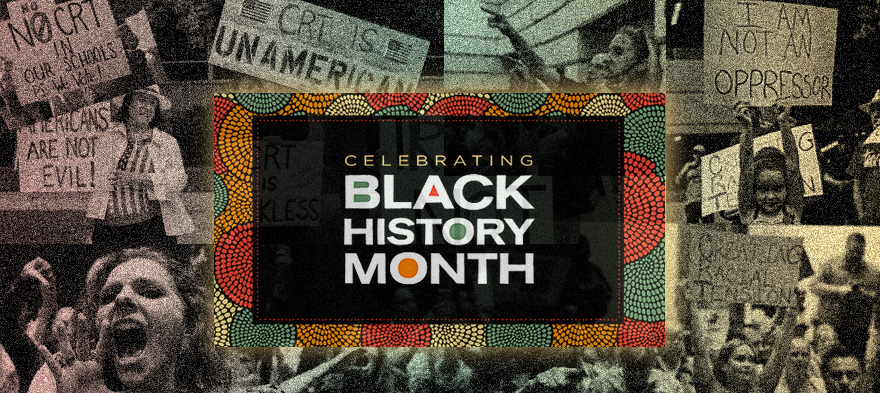
Feb 3, 2022 12:00:00 AM
I’m channeling the spirit of Dr. Chris Emdin when I say that this piece is specifically for the white folx and the rest of y’all too. It’s Black History Month, and I figure it’s time I give my two cents about my current feelings on the annual celebration.
When Carter G. Woodson founded Negro History Week in 1926, he didn’t envision the week to be limited to just a performative celebration of Black excellence. In fact, his ultimate vision was for the week to serve as a stepping stone towards liberation and humanity for all Black people—a vision that Black folx are still fighting so hard to make a reality almost a century later. When Woodson states in his classic book, “The Mis-Education of the Negro” that “the oppressor has always indoctrinated the weak with his interpretation of the crimes of the strong,” that alone should let us know Black History Month is also a learning opportunity for our students to critically analyze America’s ongoing romance with anti-Blackness and white supremacy.
[pullquote]For the white teachers reading this, please understand that you’re doing your students a disservice if you selfishly use Black History Month as a platform to center your fragility and prioritize your comfort.[/pullquote] This isn’t about keeping it safe and “cute” by maintaining the problematic annual tradition of centering the regurgitated, romanticized, “feel good” post-racial narratives of Martin Luther King, Rosa Parks, and the other usual suspects. This is about de-centering yourself to prioritize the lived experiences and overall humanity of your Black students sitting in your classroom. If you’re going to go all-in on Black History Month, let’s go all-in.
In case you’re wondering what I mean by “going all in,” I would like for you to consider these recent events and take some time to process how these incidents directly impact your Black students:
It’s unfortunate that Black History Month has become nothing more than an annual celebration that has been relegated to an intolerable outpouring of white guilt over the generational injustices that continue to dehumanize, marginalize, and oppress Black folx all across the African diaspora. [pullquote]If you’re that teacher who treats Black History Month like the ugly Christmas sweater you wear every December, only to hang it up to collect mothballs over the other eleven months of the calendar year, that’s a red flag.[/pullquote] If white guilt is the main motivation of your engagement with Black History Month, that’s another red flag. The absolution of guilt is a self-serving practice that does absolutely nothing to dismantle the very systems, policies, and practices that continue to marginalize your Black students. Let’s get real about the ugliness of America’s historical relationship with the Black community.
To be clear, I’m not suggesting that students shouldn’t celebrate and learn about the revolutionary Black leaders who sacrificed their lives and were assassinated for their unapologetic activism against racism, hate, and bigotry. As I’ve stated in a previous piece about counterstorytelling, it’s imperative for Black students to know the history of their people so they can aspire to achieve the greatness of their ancestors and learn the full truth about who they are, as well as how they are viewed by others.
[pullquote position="right"]The humanization of Black students should never be a one-month affair.[/pullquote] Rather, it must extend beyond the classroom and into the policies that we support, which leads me to this point. You can’t celebrate Black History Month with your students and advocate for the banning of critical race theory at the same time. It’s just not possible. That perspective is alarmingly flawed which means that your teaching of Black History will be equally as flawed.
And speaking of critical race theory, how are we still debating over the alleged teaching of it in schools when it provides us with the most logically sound explanation as to why Black History Month and other cultural heritage months even exist in the first place? Yes, this is a rhetorical question but it’s still worth posing to the masses.
As I step off my soapbox, I’d like to leave you with these final questions:
Don’t respond too quickly. [pullquote]It’s been time for y'all to re-examine your engagement with Black History Month[/pullquote], so really give yourself the proper time and space to process these questions. Your students deserve that much.
Kwame Sarfo-Mensah is the founder of Identity Talk Consulting, a global educational consulting firm that specializes in developing K-12 teachers into identity-affirming educators. Throughout his 17-year career as a classroom teacher, author, and consultant, Kwame has earned numerous accolades for this work, which include being honored as the 2019 National Member of the Year by Black Educators Rock, Inc. and being recognized as a Top Education Influencer by brightbeam, Inc. in 2021 and 2022. His newest book, "Learning to Relearn: Supporting Identity in a Culturally Affirming Classroom", is out now.
Few issues in education spark more tension and debate than standardized testing. Are they a tool for equity or a burden on students? A necessary check on school systems or a flawed measure of...
Charter schools are public schools with a purpose. Operating independently from traditional school districts, they're tuition-free, open to all students, and publicly funded—but with more flexibility...
Despite the benefits of a diverse teaching force, prospective teachers of color fall out of our leaky preparation pipeline at every stage: preparation, hiring, induction, and retention. Here’s what...
Ed Post is the flagship website platform of brightbeam, a 501(c3) network of education activists and influencers demanding a better education and a brighter future for every child.
© 2020-2025 brightbeam. All rights reserved.
Leave a Comment